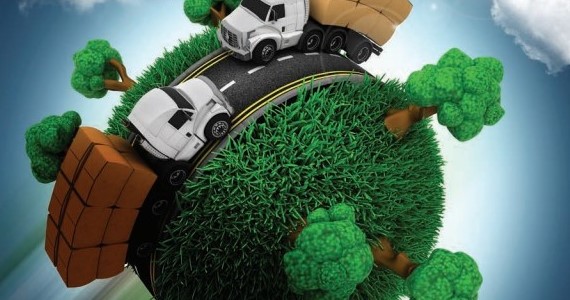A product's journey from raw materials sourcing to final delivery is fraught with environmental and societal issues in today's global supply chain.

There are a number of problems plaguing supply chains globally, such as excessive energy and water consumption, high waste production, low reuse rates, human rights issues, and abuse of labour.
It is becoming increasingly clear that companies’ supply chain and sourcing decisions have a significant impact on society as well as the environment. Organizations are increasingly recognizing the importance of tackling climate change and shouldering social responsibility.
A truly sustainable supply chain fully integrates environmental and societal values into its model at every stage. In addition to being good for the planet, it also benefits employees and the local community. Consumers and investors today are becoming more concerned about their carbon footprint, so they demand greater transparency about the production process of their products.
The global supply chain has also been strained by geopolitical disruptions such as the COVID-19 pandemic, the conflict in Ukraine, and the US-China trade war. During the COVID-19 pandemic, the semiconductor supply chain experienced deficiencies at every level. Due to the industry’s concentration in East Asia and the lack of diversification coupled with increased demand, this put a strain on an already limited supply. Ripple effects from these shortages have been felt in many industries. Since THOUGHT LEADERSHIP electric vehicles and conventional internal combustion engine vehicles require a variety of semiconductor chips, the automotive industry was especially hard hit. Assembly lines around the world were forced to halt by the pandemic, highlighting the vulnerability of supply chains, especially just-in-time models.
Establishing measurable goals is a great way to restore stakeholder confidence and ultimately achieve net zero. By leveraging innovations such as the circular economy, we can make products that last longer and can be recycled or repurposed.
In addition, supply chains will increasingly rely on advanced technologies such as big data analytics and artificial intelligence. The use of data-driven supply chains allows companies to gain greater insight into their operations, allowing them to make more informed and strategic decisions.
Companies that do not comply with environmental, social, and governance requirements today put their brands at risk and may face financial penalties. Supply chains are the easiest first step for many undertaking the journey to decarbonization. Companies will not only look forward to a better bottom line but a better planet as well. Sustainability is no longer a ‘nice-to-have' but a ‘must-have' for all businesses. •







